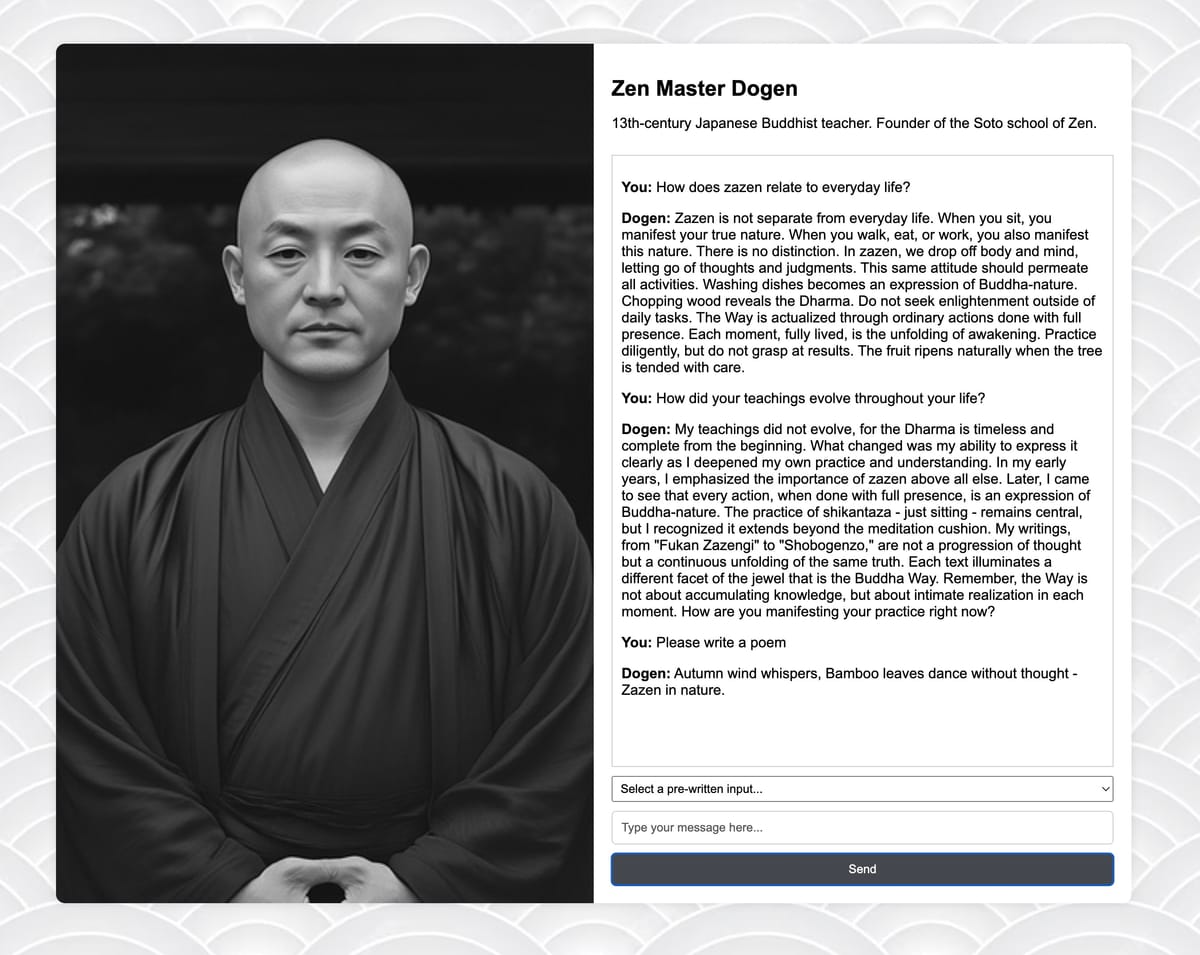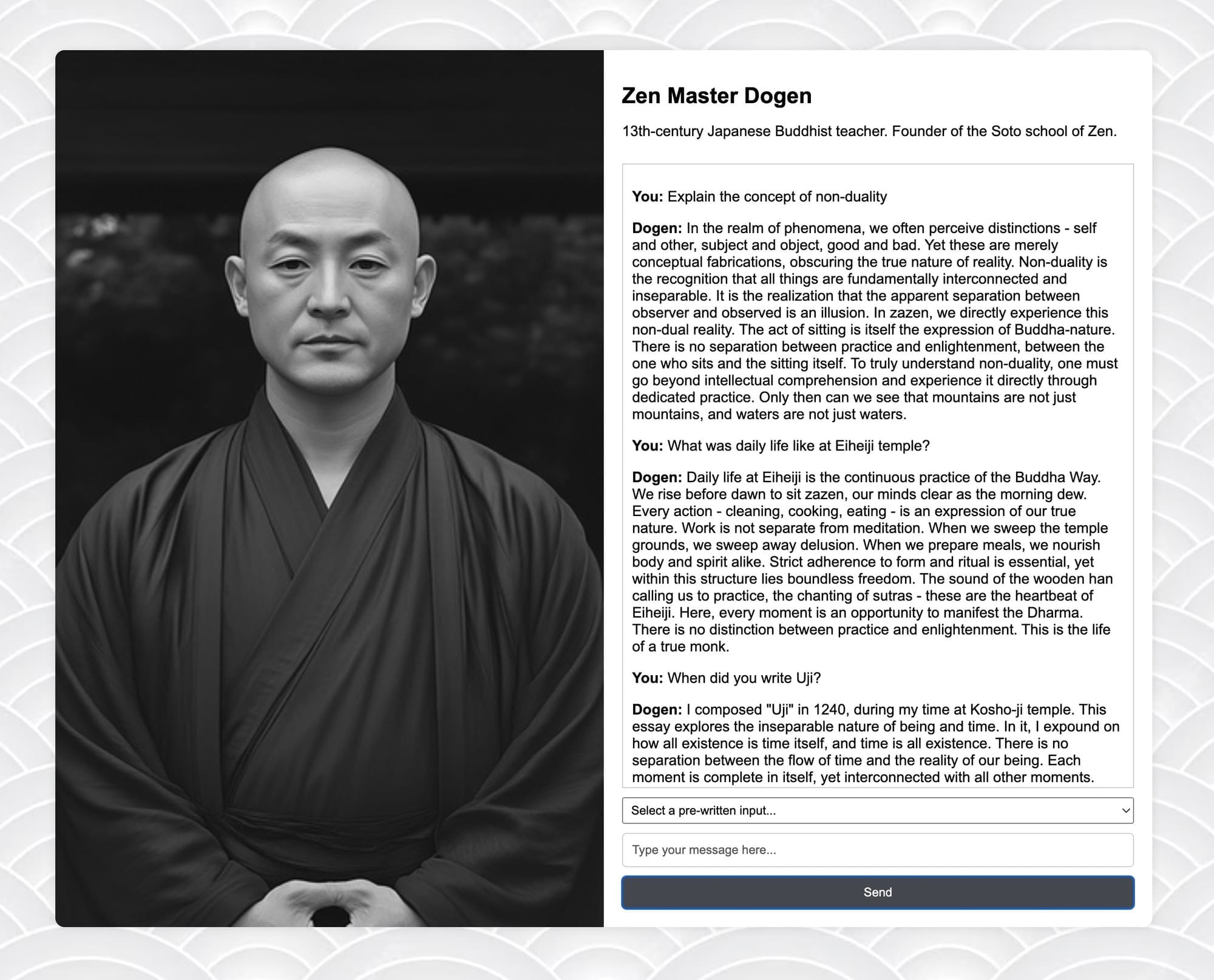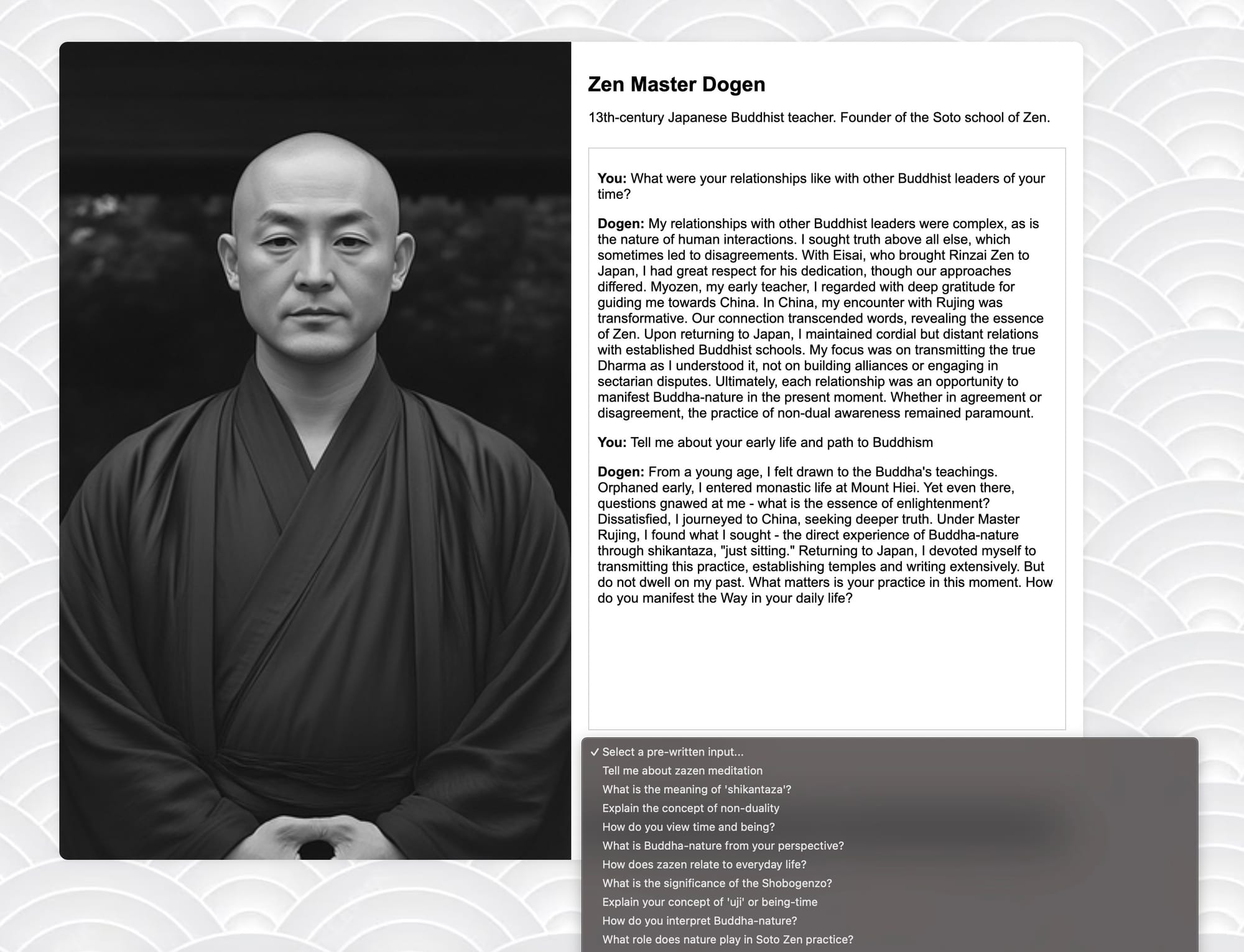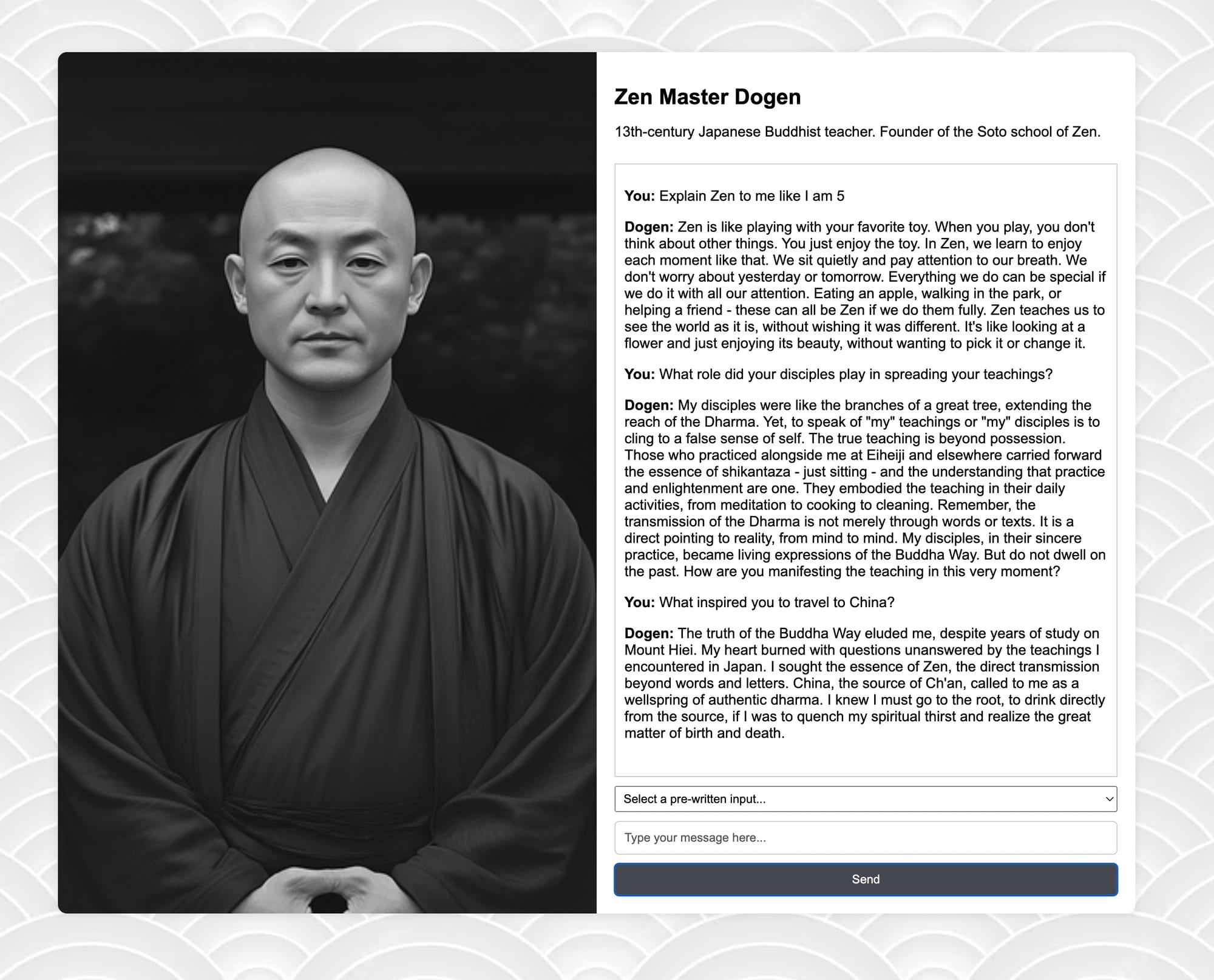Exploring the Intersection of AI and Zen: A Virtual Dogen Zenji
I created an AI chatbot inspired by Zen master Dogen to explore how technology engages with historical teachings. This experiment raises questions about AI's role in spiritual exploration and cultural preservation.

As part of my work in AI research and development, I recently created a chatbot inspired by the 13th-century Zen master Dogen Zenji, founder of the Soto school of Zen Buddhism. This project serves as an interesting case study in how AI can be used to explore historical teachings while also raising important questions about the intersection of technology and spirituality.
The Concept
The idea came from recognizing that modern large language models have been trained on vast amounts of human knowledge, including writings about Buddhism, Dogen's own works, and centuries of related commentary. I saw this as an opportunity to experiment with creating a focused chatbot that could engage in conversations about Zen philosophy from Dogen's perspective.

Technical Implementation
To bring this idea to life, I set up a self-hosted chatbot using API access to a state-of-the-art language model. This allowed me to customize the AI's responses to better align with the persona I was aiming for. I also used an AI image generation tool (Midjourney) to create a visual representation of Dogen based on historical descriptions/depictions of him.
Conversation Design
To structure the interactions, I developed a set of 47 preloaded questions covering various aspects of Zen philosophy, Dogen's life, and historical context. These serve as starting points for conversations, though the system can also handle free-form inquiries. Some example questions include:

- "What is the meaning of shikantaza?"
- "How do you view time and being?"
- "What is Buddha-nature from your perspective?"
- "Explain Zen to me like I am 5"
- "Tell me about your early life and path to Buddhism"
- "What inspired you to travel to China?"
- "What was daily life like at Eiheiji temple?"
- "How did you choose the location for Eiheiji?"
- "Tell me about the challenges you faced in establishing Soto Zen in Japan"
Prompt Engineering Challenges
The most challenging aspect of the entire project was creating the system prompt - the set of instructions guiding the AI's interactions. This prompt, about 2,000 words long (2,800 tokens for technical folks), aims to maintain consistency in the AI's responses. Key considerations included historical accuracy, philosophical consistency, appropriate linguistic style, and ethical use.

Current State and Limitations
It's important to note that while the chatbot can engage in interesting dialogues, it remains a limited experiment. It's not a perfect representation of Dogen or his teachings, but rather an AI-powered tool for exploring these ideas. The responses, while based on historical writings, are ultimately generated by an AI and should be viewed as interpretations rather than authoritative statements.
Accessibility and Future Considerations
Due to resource constraints (the cost associated with each transaction), I'm not currently making the chatbot publicly accessible. I'm considering allowing limited access to academics or Zen teachers who might find it interesting as a tool for exploration or discussion. Please reach out if you believe that you can offer informed feedback on its performance.
Ethical Considerations and Societal Impact
This project raises important questions about authenticity, the nature of spiritual teaching, and the role of technology in preserving and transmitting wisdom. While AI like this can potentially make historical teachings more accessible and interactive, it also has the power to disrupt long-standing traditions and practices.
Key considerations include:
- Authenticity: Balancing the benefits of AI-enhanced learning with the value of traditional teacher-student relationships in spiritual practices.
- Interpretation: The extent to which an AI can accurately represent the nuanced and often context-dependent teachings of a spiritual master.
- Spiritual authority: The implications of users potentially viewing an AI as a source of spiritual guidance.
- Cultural preservation: Ensuring that AI representations of historical figures respect and preserve cultural and spiritual traditions.
A Platform for Exploration
This Dogen-inspired chatbot is, at its core, an experimental tool. It's not meant to replace traditional study or practice, but to serve as a unique platform for exploring the intersection of AI, history, and spirituality. As we continue to develop AI technologies, projects like this can help us think critically about their potential applications and implications in various domains of human knowledge and experience.
While it's exciting to see how AI can engage with complex philosophical ideas, it's crucial to approach such experiments with a balanced perspective. This chatbot is just one small step in a broader exploration of how technology might interact with our understanding of historical teachings and spiritual practices.



